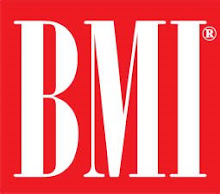On Thursday, Sept 2nd 7-9PM Fat Bes Record Store Officially Closed!
Located in NY 406 Avenue of Americas (Between 8th and 9th Streets), New York, NY After 16 years of business Fat Beats record store officially closed its doors. Duck Down Records recording artists Buckshot, Smif N Wessun, Pharoahe Monch, Rock of Heltah Skeltah, Skyzoo & !llmind, Torae and Ruste Juxx was on deck signing autographs to pay homage and show respect among many other entertainers at this Fat Beats in-store event.
In
1997, Paul Rosenberg, the attorney of an aspiring rapper from Detroit
calling himself Eminem, was walking along 6th Avenue in the West
Village with ten copies of an independent 12-inch vinyl single titled
"Just Don't Give a Fuck." His mission was simple: try to persuade a
record store called Fat Beats to stock it. He'd heard the store
mentioned on Stretch Armstrong and Bobbito's WKCR college-radio show,
and thought it crucial to launching the career of an underground rap
artist. Q-Unique, a Fat Beats employee at the time and member
of the Arsonists, remembers the encounter. "Paul came in and asked me
to take the record," he says. "The manager wasn't sure about it, but I
knew Eminem's rep from the underground battle circuit. I said I'd be
responsible for them if they didn't sell." All ten copies sold within
an hour.
A year later, Eminem would return to Fat Beats for an in-store to meet and greet fans. By then he was on the cusp of going ballistic, and the line backed up to 9th Street. His ascent to superstar status was almost preordained--a major-label deal with Interscope and the guiding hand of Dr. Dre did most of the work--but the emporium played a key part in his come-up. Rosenberg, now Eminem's manager, insists that "for a totally independent artist, one without any distribution deal, getting your record in Fat Beats was the only way back then."
Now that way's gone. Fat Beats closes its New York branch on Saturday, September 4th. For fans and underground artists, the demise of the store that dubbed itself "the last stop for hip-hop" feels like the loss of the music's spiritual home.
,br> The Fat Beats story begins in 1993, when Joe Abajian, a local DJ, was hopping around the city's record spots looking for new rap releases. Bouncing from Music Factory in Times Square to Beat Street in Downtown Brooklyn, with detours at Downtown Records (Flatiron) and Vinyl Mania (West Village), he had the idea to open a store where you could "get all your rap records in the same spot." A year later, he opened Fat Beats in its first location, a basement on 9th Street. In 1996, he expanded to the 6th Avenue spot.
From the outside, Fat Beats was inconspicuous, situated unceremoniously above a Bagel Buffet and accessed through an adjacent door and up a dimly lit staircase. Inside, the store glowed like a hip-hop junkie's secret stash: Racks of vinyl records lined the walls, while signed 8-by-10 promotional photos and posters covered the ceiling like a hip-hop who's-who: Outkast, Main Source, Common, Redman, KRS-One, Public Enemy. "They were like hip-hop plaques," says DJ Premier, whose former group Gang Starr claimed two pieces of paraphernalia in the store. On his own pic, D.I.T.C. member Diamond D wrote, "Fat Beats, Keep servin' the fiendz."
WE WILL MISS YOUI "fat beats!"
| Gang Starr flanking Fat Beats owner Joseph Abajian, who unfortunately saw this coming |
A year later, Eminem would return to Fat Beats for an in-store to meet and greet fans. By then he was on the cusp of going ballistic, and the line backed up to 9th Street. His ascent to superstar status was almost preordained--a major-label deal with Interscope and the guiding hand of Dr. Dre did most of the work--but the emporium played a key part in his come-up. Rosenberg, now Eminem's manager, insists that "for a totally independent artist, one without any distribution deal, getting your record in Fat Beats was the only way back then."
Now that way's gone. Fat Beats closes its New York branch on Saturday, September 4th. For fans and underground artists, the demise of the store that dubbed itself "the last stop for hip-hop" feels like the loss of the music's spiritual home.
,br> The Fat Beats story begins in 1993, when Joe Abajian, a local DJ, was hopping around the city's record spots looking for new rap releases. Bouncing from Music Factory in Times Square to Beat Street in Downtown Brooklyn, with detours at Downtown Records (Flatiron) and Vinyl Mania (West Village), he had the idea to open a store where you could "get all your rap records in the same spot." A year later, he opened Fat Beats in its first location, a basement on 9th Street. In 1996, he expanded to the 6th Avenue spot.
From the outside, Fat Beats was inconspicuous, situated unceremoniously above a Bagel Buffet and accessed through an adjacent door and up a dimly lit staircase. Inside, the store glowed like a hip-hop junkie's secret stash: Racks of vinyl records lined the walls, while signed 8-by-10 promotional photos and posters covered the ceiling like a hip-hop who's-who: Outkast, Main Source, Common, Redman, KRS-One, Public Enemy. "They were like hip-hop plaques," says DJ Premier, whose former group Gang Starr claimed two pieces of paraphernalia in the store. On his own pic, D.I.T.C. member Diamond D wrote, "Fat Beats, Keep servin' the fiendz."
WE WILL MISS YOUI "fat beats!"
.jpg)









































.jpg)

.jpg)








No comments:
Post a Comment